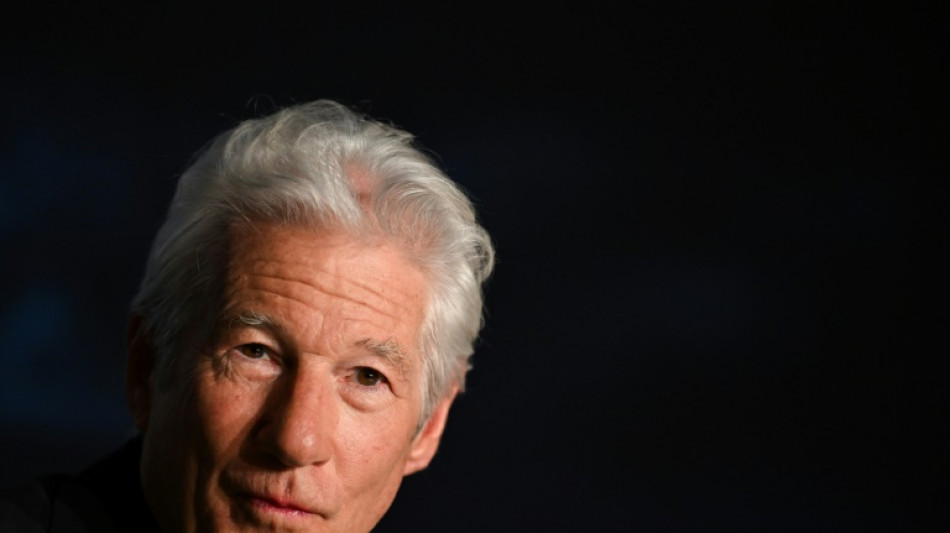

'Can I kill someone?': Richard Gere's dilemma in 'Oh, Canada'
As one of the West's most famous Buddhists, and a close friend of the Dalai Lama, Richard Gere has thought long and hard about the moral quandary at the heart of his new film "Oh, Canada".
Gere plays Leonard Fife, a revered documentary filmmaker with a murky past, who is hailed as a hero for his refusal to fight in the Vietnam War.
"Whether it is a just or unjust war, can I kill someone? What do I do to defend our family?... We all ask ourselves that question," Gere said at Cannes Film Festival on Saturday.
According to his Buddhist studies, "from an absolute point of view, if you either are to be killed, or kill someone else, better that you be killed," he told AFP.
But "it's very hard to exist that way", Gere admitted.
As the film opens, Leonard is frail and at death's door. Determined to unburden himself of his past deceits, he agrees to be interviewed about his mysterious past.
It soon emerges that his entire, successful life has been built on a series of lies. His true reasons for fleeing from the United States to Canada as the Vietnam War raged are just the tip of the iceberg.
Based on the novel "Foregone" by Russell Banks, "Oh, Canada" is Gere's second film with Paul Schrader, the screenwriter of "Raging Bull" and "Taxi Driver".
- 'Freaky' -
It comes more than four decades after Schrader launched Gere into Hollywood's A-list by casting him in "American Gigolo".
If that role was responsible for positioning Gere as a world-famous sex symbol, his appearance in "Oh, Canada" could not be further removed from that glamour.
The film finds Gere sporting blotched skin, restricted to a wheelchair, and carrying a urine drainage bag.
"It was kind of freaky when we going through the process of ageing," said Gere.
"I saw myself some years from now, what I'm going to look like. It's a very odd thing."
The actor drew on his own father, who passed away recently.
In the film, it is never clear whether the memories Leonard is recounting are accurate, or the warped result of his guilt, powerful cancer medication, and the lengthy passage of time.
"I saw that with my father when he was dying. He had memories that were completely false, that he was absolutely certain they happened," he recalled.
The film jumps between the present and past. Modern-day heartthrob Jacob Elordi, of television's "Euphoria," portrays a younger Leonard.
But even in the flashbacks, Gere sometimes appears on screen as his younger self, adding to the sense that our narrator may not be reliable.
"Things are all over the place. I think you'd take a couple of screenings of this to make more sense of it," said Gere. "It's a complicated piece."
R.Abate--IM



